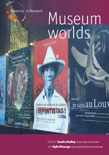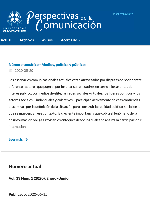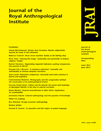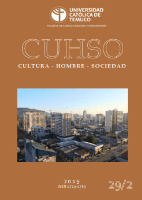
Cuadernos de Antropologia
Scope & Guideline
Unveiling the Rich Tapestry of Human Experience
Introduction
Aims and Scopes
- Cultural Anthropology:
The journal emphasizes the exploration of cultural practices, beliefs, and social structures, particularly in Latin America, providing insights into community dynamics and individual experiences. - Archaeological Research:
It features studies that contribute to the understanding of past societies through archaeological findings, examining artifacts, sites, and historical contexts relevant to Central America. - Interdisciplinary Approaches:
The journal encourages interdisciplinary research that integrates anthropology with other fields such as sociology, history, and environmental studies, reflecting the complexity of human societies. - Gender Studies:
A consistent focus on gender issues, particularly how they intersect with cultural practices and social change, is evident, enhancing the understanding of gender dynamics in various contexts. - Digital Anthropology:
The inclusion of studies related to digital culture, such as the impact of social media and internet phenomena, indicates a commitment to addressing contemporary issues through an anthropological lens.
Trending and Emerging
- Digital Culture and Political Engagement:
The exploration of internet memes and their role in political participation indicates a growing interest in how digital platforms influence sociopolitical landscapes, especially among youth. - Indigenous Studies and Community Participation:
Research focusing on indigenous communities, their participation, and social transformations reveals an increasing commitment to understanding and amplifying indigenous voices and issues. - Gender and Health Issues:
The rise in studies examining gender dynamics in relation to health, such as teenage pregnancy, underscores a critical engagement with pressing social issues affecting marginalized populations. - Environmental Anthropology:
The examination of socio-environmental conditions and agricultural practices suggests a trend towards understanding the interplay between culture, environment, and sustainability. - Archaeology of Everyday Life:
There is a growing interest in the archaeology of daily practices, such as food preparation and material culture, indicating a shift towards understanding the lived experiences of past societies.
Declining or Waning
- Traditional Ethnographic Studies:
There appears to be a decreasing number of papers focusing on traditional ethnographic methods and narratives, possibly due to a shift towards more contemporary and digital methodologies. - Historical Archaeology:
Papers specifically centered on historical archaeological contexts seem to be less frequent, suggesting a potential shift towards more current or applied research themes rather than historical reconstructions. - Rural Anthropology:
Although rural contexts remain important, the focus on rural anthropology, particularly in the context of migration and rural-urban dynamics, has reduced, indicating a possible shift towards urban studies.
Similar Journals

Museum Worlds
Fostering critical reflection on cultural institutions.Museum Worlds is a distinguished academic journal published by BERGHAHN JOURNALS, dedicated to advancing scholarship in the fields of Museology and Conservation. With a strong impact within the academic community, evidenced by its 2023 Scopus rankings—#16 in Museology and #32 in Conservation—this journal offers an engaging platform for innovative research and discourse surrounding museum practices and cultural heritage. Since transitioning to Open Access in 2020, Museum Worlds has broadened its reach, making valuable insights available to researchers and practitioners globally. With its publication spanning from 2019 to 2023 and positioning in the top quartiles of respective categories, this journal is integral for those invested in the evolution of museum studies, providing a space for critical reflection, debate, and the sharing of pioneering methodologies in the stewardship of cultural institutions. Located in the heart of Brooklyn, NY, it stands as a hub for the scholarly community, inviting contributions that push the boundaries of knowledge in the ever-evolving landscape of museums.

Boletin Antropologico
Connecting Scholars to the Heart of Human SocietyBoletin Antropologico, published by UNIV LOS ANDES, is a vital academic journal dedicated to the field of anthropology, focusing on the diverse cultural practices, social structures, and historical contexts of societies, particularly within Latin America. With its ISSN of 0257-750X, this journal aims to provide a platform for researchers and scholars to disseminate their findings and engage in meaningful discussions that advance the understanding of anthropological issues. Although Boletin Antropologico currently does not follow an open-access model, it remains a significant resource for professionals seeking peer-reviewed content that reflects rigorous academic standards. With a commitment to fostering intellectual growth and collaboration among anthropologists, the journal serves as an essential reference for students and practitioners keen on exploring the rich tapestry of human cultures and societies.

Revista de Arqueologia Historica Argentina y Latinoamericana
Advancing Knowledge in Historical Archaeology Across BordersRevista de Arqueologia Historica Argentina y Latinoamericana is a vital scholarly journal dedicated to the field of archaeology, with a particular focus on the historical dimensions of Argentina and Latin America. Published by the Assoc Professional Archaeologists Argentine Republic, this open-access journal has been enriching the archaeological discourse since 2007, making its valuable content freely accessible to researchers, professionals, and students around the globe. With an ISSN of 1851-3190 and an E-ISSN of 2344-9918, the journal aims to foster a deeper understanding of the archaeological heritage of the region by publishing innovative research articles, critical reviews, and methodological advancements in the study of historical archaeology. Positioned as a prominent platform for scholarship, it plays a crucial role in advancing archaeological knowledge while promoting interdisciplinary approaches within the field.

Boletin de Arte-UMA
Promoting Open Access to Artistic ScholarshipBoletin de Arte-UMA is a distinguished academic journal published by the University of Malaga, Department of History of Art, focusing on the rich interplay between history, visual arts, and performing arts. Operating under an Open Access model since 2013, this journal ensures that valuable research is freely available for scholars and practitioners worldwide. With an impact factor currently reflecting its academic rigor through its Q2 ranking in History and Q1 ranking in Visual Arts and Performing Arts, Boletin de Arte-UMA serves as a vital platform for cutting-edge research, critical analysis, and the promotion of cultural heritage studies. Based in Malaga, Spain, the journal not only provides insights into its thematic scope but also fosters a global dialogue among researchers, professionals, and students passionate about the visual and performing arts.

Virajes-Revista de Antropologia y Sociologia
Unlocking Insights into Latin American Social DynamicsVirajes-Revista de Antropologia y Sociologia, published by UNIV CALDAS, is a premier open-access journal that has been at the forefront of anthropological and sociological research since its inception in 2008. With the ISSN 0123-4471 and the E-ISSN 2462-9782, this journal offers a unique platform for scholars and practitioners to disseminate high-quality research that contributes to the understanding of social dynamics and cultural phenomena, particularly in the Latin American context. The journal seeks to foster an interdisciplinary approach, bridging theoretical and empirical research, and encouraging critical dialogues on contemporary issues in anthropology and sociology. By providing open access, Virajes ensures that its valuable content is available to a global audience, thus enhancing knowledge dissemination and engagement within the academic community. With its commitment to excellence and accessibility, Virajes stands as an essential resource for researchers, professionals, and students committed to exploring the complexities of human societies.

Perspectivas de la Comunicacion
Illuminating Contemporary Issues in CommunicationPerspectivas de la Comunicacion is an esteemed open-access academic journal published by UNIV FRONTERA, dedicated to the field of communication studies. With an ISSN of 0718-4867, the journal has established itself as a vital resource for scholars and practitioners since its inception in 2008, offering a platform for innovative research and discourse across various communication paradigms. Located in the heart of Chile at AV FRANCISCO SALAZAR, TEMUCO, this journal caters to a diverse international audience, encouraging contributions that reflect the global nature of communicative practices. While specific ranking metrics such as HIndex and Scopus Ranks are not readily available, the journal's open-access model ensures that its contributions are widely disseminated, promoting greater accessibility and engagement within the academic community. The objectives of Perspectivas de la Comunicacion include fostering critical discussion on contemporary issues in communication, highlighting interdisciplinary research, and providing a space for emerging voices in the field. This commitment to scholarly excellence positions the journal as a significant player in advancing knowledge and understanding within communication studies.

Social Analysis
Bridging Anthropology, Culture, and SocietySocial Analysis, an esteemed academic journal published by BERGHAHN JOURNALS, is at the forefront of interdisciplinary research, focusing on the dynamic intersections of anthropology, cultural studies, sociology, and the arts and humanities. Since its inception in 2002 and having transitioned to an Open Access model in 2020, the journal ensures that critical social research is widely accessible to scholars and the public alike. With an impressive Q1 ranking in Anthropology and cultural studies and holding a notable Q2 in Sociology and Political Science, it garners attention from a large academic audience, as evidenced by its high Scopus rankings: 10th in general arts and humanities and 153rd in cultural studies. This signifies its influential role in shaping contemporary discourse and providing a platform for innovative ideas and methodologies in understanding social phenomena. Based in Brooklyn, NY, the journal is dedicated to fostering scholarly dialogue and advancing the field, making it an essential resource for researchers, professionals, and students eager to engage with and contribute to the field of social analysis.

JOURNAL OF THE ROYAL ANTHROPOLOGICAL INSTITUTE
Bridging Cultures Through Scholarly ExcellenceJOURNAL OF THE ROYAL ANTHROPOLOGICAL INSTITUTE, published by Wiley, stands as a prestigious platform for scholarly discourse in the field of anthropology. With an ISSN of 1359-0987 and an E-ISSN of 1467-9655, this journal has been a vital resource for researchers, professionals, and students since its inception, featuring contributions that push the boundaries of understanding in both cultural and social anthropology. The journal’s rigorous peer-review process affirms its high academic standards, reflected in its top-tier Q1 rankings in both the Anthropology and Arts and Humanities categories for 2023. With a current ranking of #78 out of 502 in Social Sciences Anthropology and #138 out of 552 in Miscellaneous Arts and Humanities, it inhabits a critical space within academia, addressing seminal issues and innovative research. While the journal is not open access, it remains accessible to those affiliated with institutions that provide subscriptions, ensuring that groundbreaking anthropological insights are disseminated widely within the academic community. As it converges from 1995 to the present, the JOURNAL OF THE ROYAL ANTHROPOLOGICAL INSTITUTE continues to shape the landscape of anthropological research, engaging a diverse readership eager to explore the intricate tapestry of human cultures.

CUHSO-Cultura-Hombre-Sociedad
Illuminating Contemporary Issues in Humanities and SocietyCUHSO-Cultura-Hombre-Sociedad is an esteemed academic journal published by UNIV CATOLICA TEMUCO, dedicated to the fields of culture, humanities, and social sciences. Since its inception in 1984, this Open Access journal has provided a platform for scholarly discourse, fostering an environment for researchers, professionals, and students to disseminate their findings and engage with contemporary issues in society. CUHSO’s mission is to promote interdisciplinary research that addresses the complexities of human culture and social dynamics, making it a crucial resource for those invested in understanding societal transformations. With an ISSN of 0716-1557 and an E-ISSN of 0719-2789, the journal ensures wide accessibility to its content, while also contributing to the global academic conversation through open access. As the journal continues to expand its reach and impact, it remains a vital resource for academics and practitioners alike, bridging the gaps in cultural and societal understanding.

Historia-Santiago
Engaging with Diverse Perspectives on Historical ContextsHistoria-Santiago is an esteemed academic journal published by the Pontificia Universidad Católica de Chile, Instituto de Historia. Since its inception in 2000, the journal has embraced an Open Access model, facilitating broad dissemination of historical research and ensuring that critical scholarly work is freely accessible to researchers, professionals, and students around the globe. With a focus on Latin American history, Historia-Santiago provides a platform for innovative research and contributions that engage with diverse historical narratives and methodologies. The journal aims to foster interdisciplinary dialogue and stimulate scholarly debate, thereby enriching the understanding of historical contexts and their implications in contemporary society. By maintaining high academic standards, Historia-Santiago occupies a vital role in the field of historical studies, encouraging authors to explore new ideas and perspectives that shape the understanding of our past.